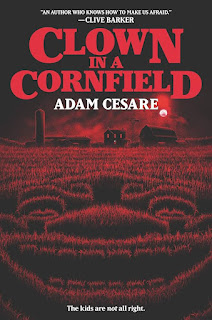Runes, grimoires, hexes, and bone triangles: three timelines weave together a complex tale of female empowerment.
Something strange has happened on the Scottish island of Lòn Haven, and the answer hinges on a horrible occurrence at a lighthouse called The Longing.
The Lighthouse Witches moves between three different timelines. The central story, which takes place in 1998, focuses on British artist Olivia “Liv” Stay and her three daughters facing economic peril. The wealthy and conspicuously absent owner of the ramshackle lighthouse commissions Liv to paint odd symbols on its interior. Liv meets a man named Fin and gradually learns more about Lòn Haven’s residents and history. She also learns there’s much more to the lighthouse than the water on the floor and the bats on the ceiling; this lighthouse has a history that is not favourable toward women.
This first portion also dips into the point of view of Liv’s combative oldest daughter Saffy, who seeks to learn more about the lighthouse by exploring the caves beneath it.
The second timeline occurs in 2021 and is told from the perspective of Luna, Liv’s middle daughter and presumably the only surviving member of the family. Luna, now pregnant, is haunted by a sketchy memory of getting tied to a tree in a forest while her mother and two sisters disappeared. When Luna’s long-lost younger sister Clover resurfaces, her appearance and behaviour shock Luna and lead to complications.
The third story, narrated by Patrick Roberts through his grimoire, takes place in 1662. It details his travails on the island, including a relationship with a special friend named Amy and an accusation made against his mother.
Cooke pulls off an impressive balancing act with the alternating timelines, breadth of years, and variety of points of view (i.e. first-person past, first-person present, third-person present). She also uses Lòn Haven’s gloomy weather to thicken the pall of mysteriousness that shrouds the island, a place whose residents fear supernatural creatures called wildlings and where some children have numbers branded on their arms. Perhaps the novel’s greatest accomplishment is its treatment of the age-old problem of the suppression of women.—Douglas J. Ogurek ****




